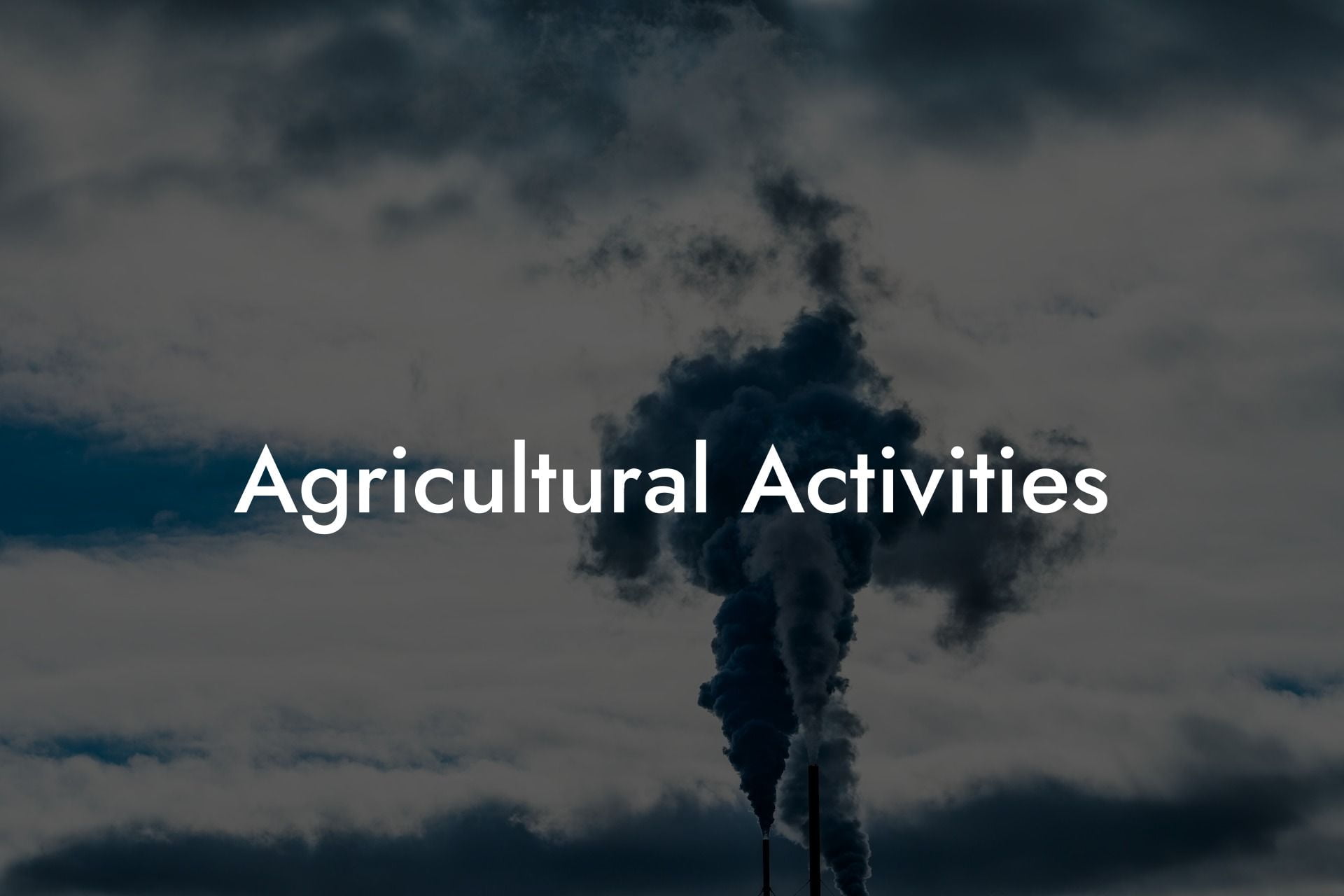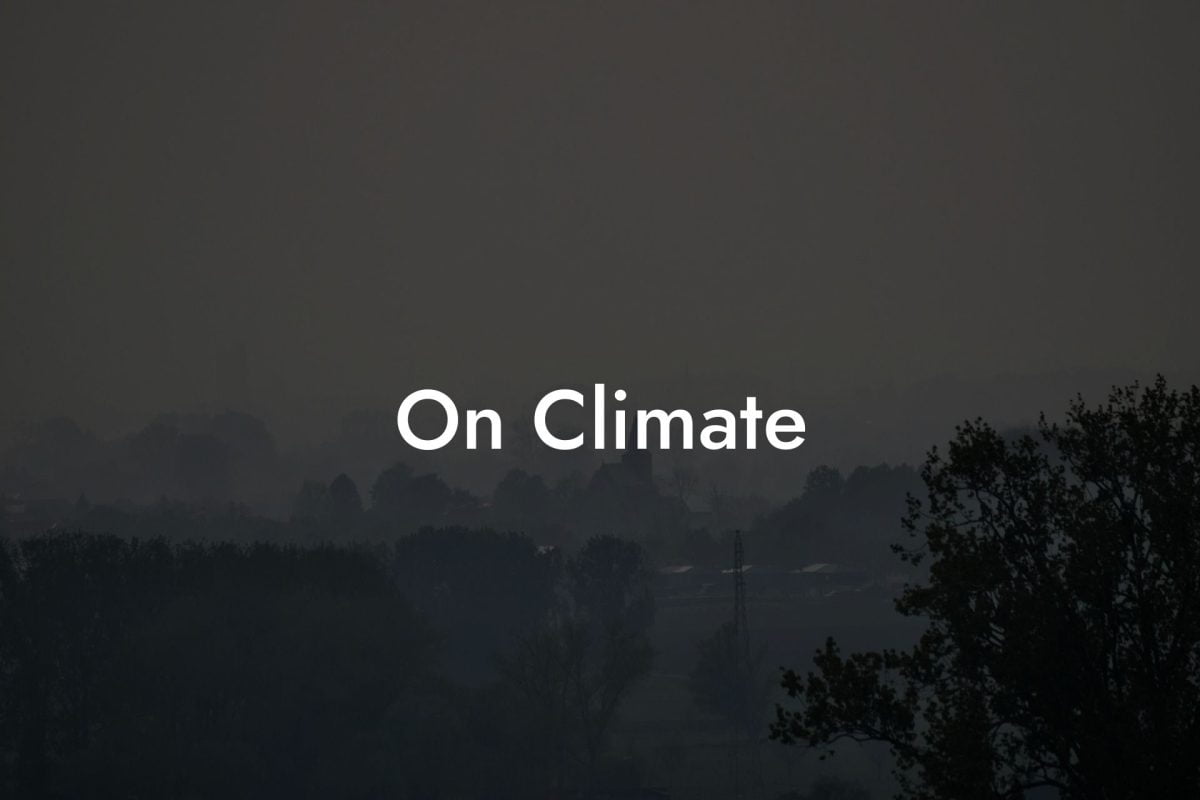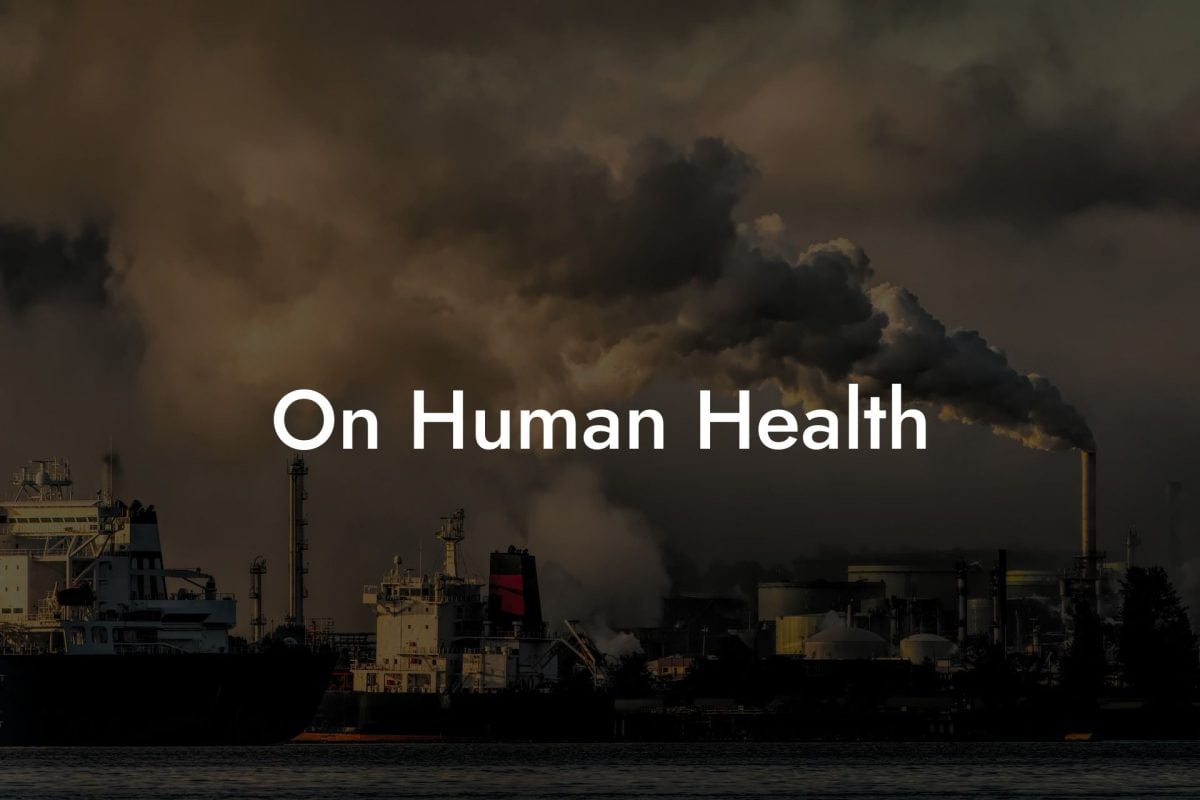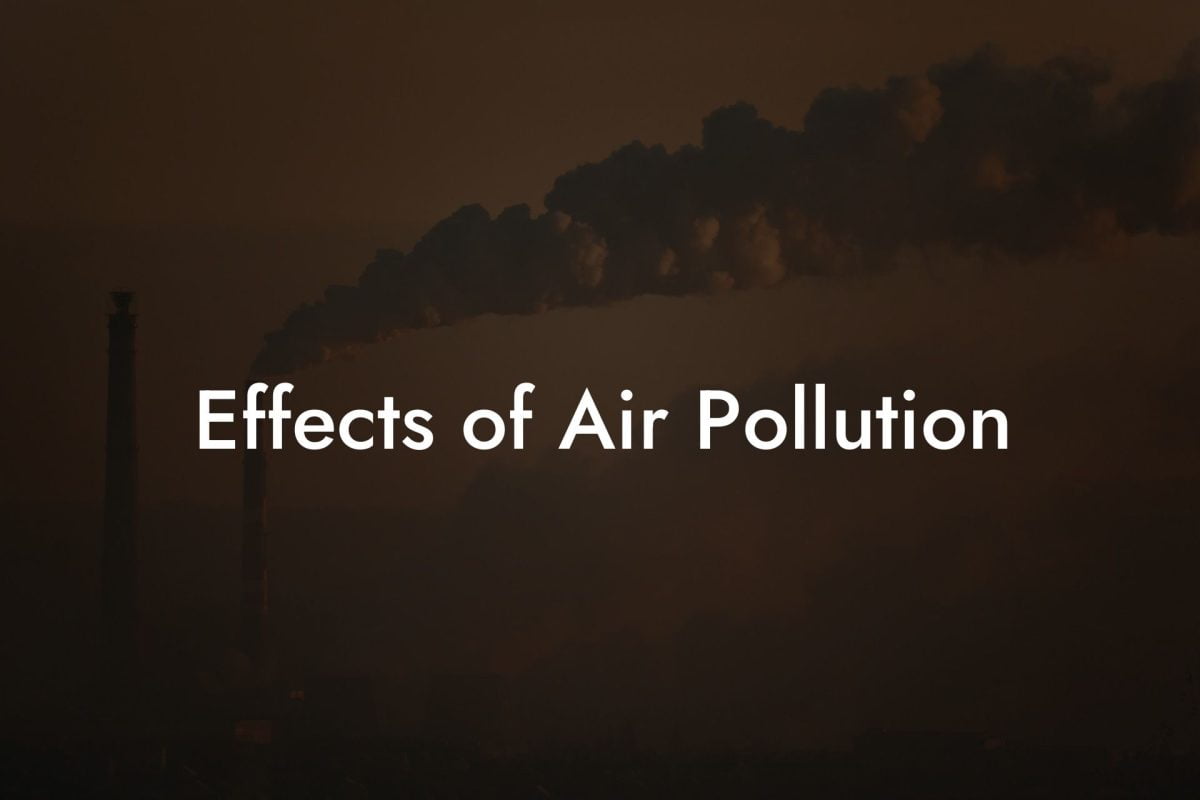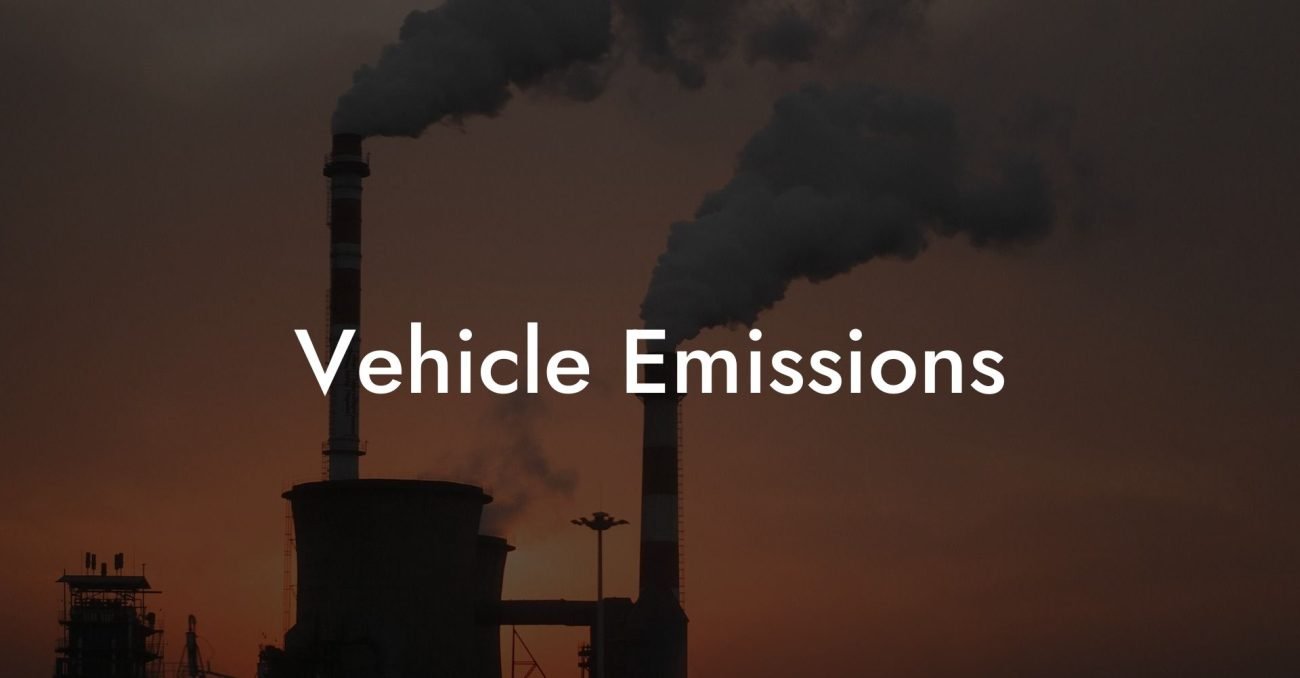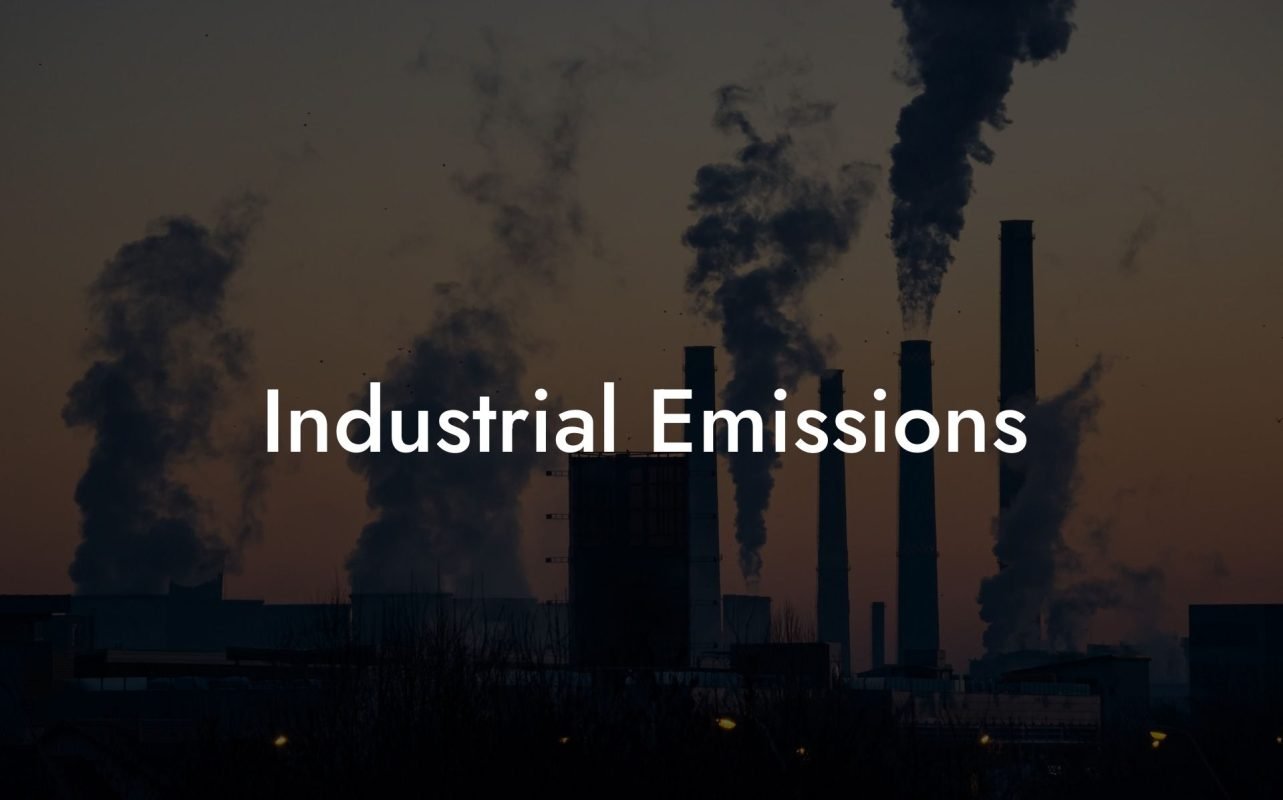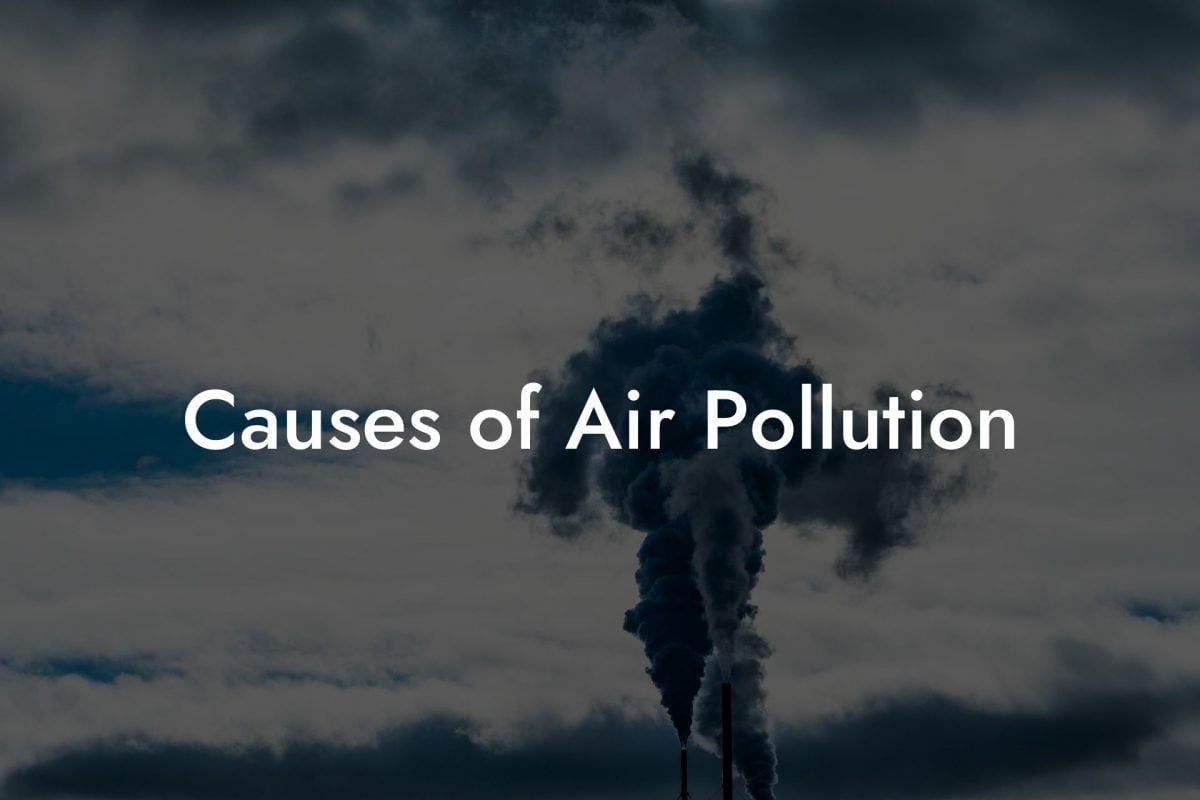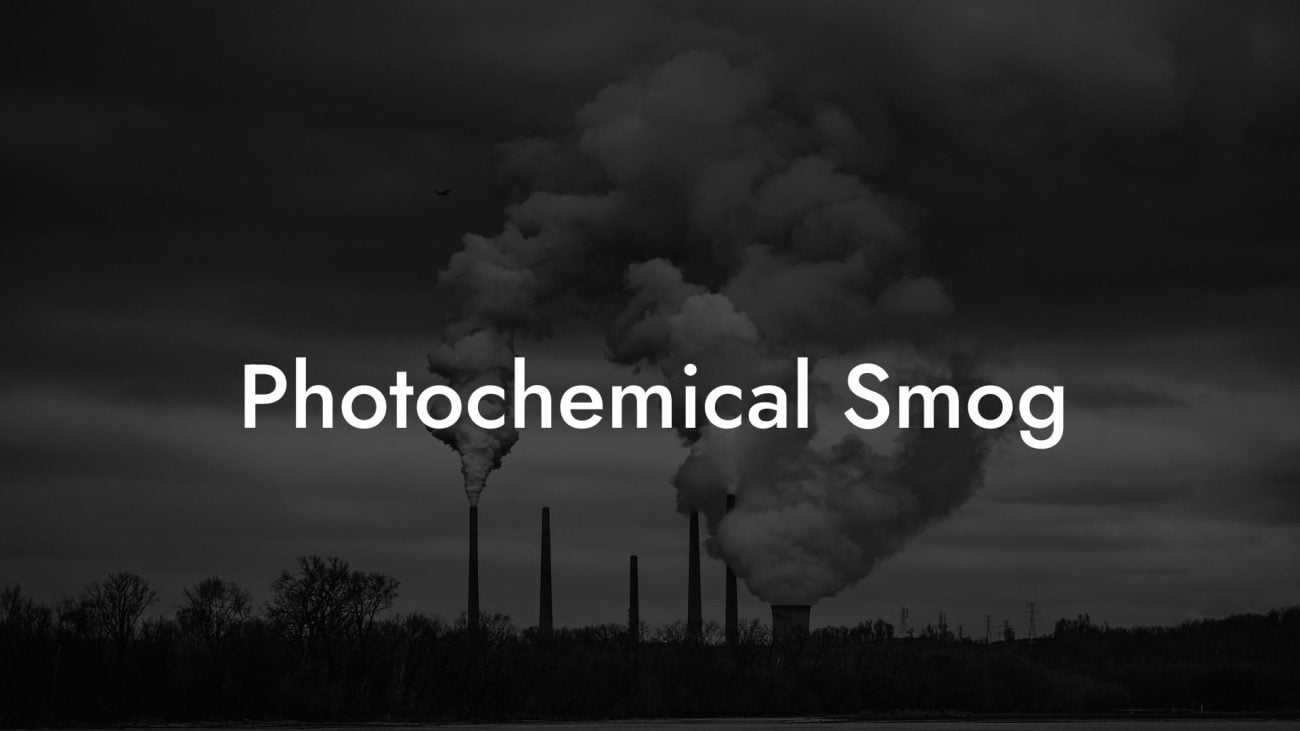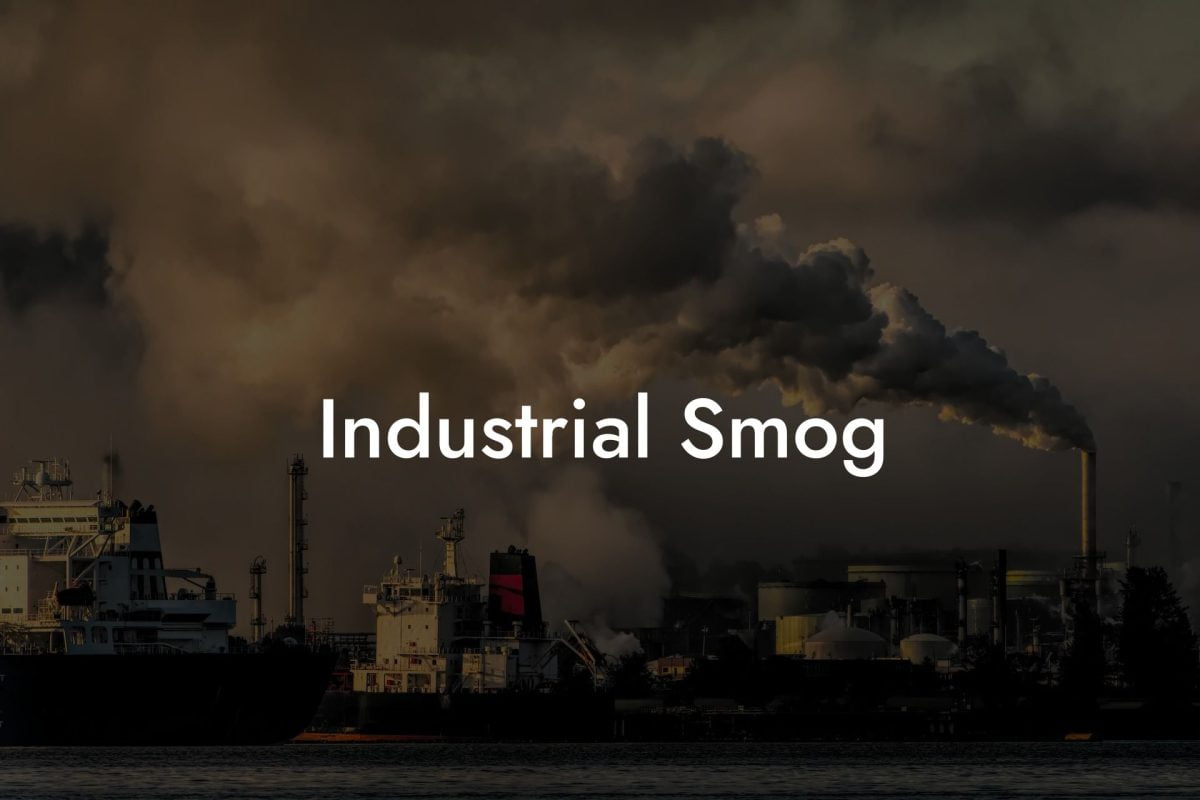Introduction to Agricultural Air Pollution
Agricultural activities contribute significantly to air pollution, affecting air quality both locally and globally. While essential for food production, these activities release various pollutants that impact the environment and human health.
The Scope of Agricultural Emissions
The range of pollutants from agriculture includes particulate matter, ammonia (NH3), methane (CH4), nitrogen oxides (NOx), and volatile organic compounds (VOCs), as well as pesticide and herbicide aerosols.
Key Sources of Agricultural Air Pollution
Livestock Farming
Livestock such as cattle, sheep, and pigs produce methane, a potent greenhouse gas, through enteric fermentation. Manure management also releases methane and ammonia.
Crop Production
The use of fertilizers in crop production contributes to emissions of NOx and ammonia, leading to air and water pollution.
Agricultural Machinery
Tractors, harvesters, and other machinery emit NOx, PM, and CO2, contributing to air pollution.
Burning of Agricultural Residues
Open burning of crop residues releases smoke and a variety of pollutants, including particulate matter and VOCs.
Health Impacts of Agricultural Pollution
Respiratory Diseases
Exposure to agricultural pollutants, especially particulate matter and ammonia, can lead to respiratory issues and exacerbate conditions like asthma and bronchitis.
Exposure to Chemicals
Pesticides and herbicides used in agriculture can become airborne, leading to potential health risks upon inhalation.
Environmental Effects
Eutrophication and Acid Rain
Ammonia from agricultural sources contributes to the formation of particulate matter and, along with NOx emissions, leads to eutrophication and acid rain.
Contribution to Climate Change
Methane from livestock and NOx from soil management are significant contributors to global warming.
Monitoring and Regulation
Monitoring air quality in and around agricultural areas helps in assessing the impact of agricultural practices on air pollution.
Environmental Regulations
Regulations aimed at reducing emissions from agriculture include limits on the use of fertilizers and guidelines for manure management.
Strategies for Reducing Agricultural Emissions
Sustainable Farming Practices
Adopting sustainable farming practices, such as precision agriculture and integrated pest management, can reduce the need for chemical inputs and lower emissions.
Improved Livestock Management
Changing livestock feeding practices and better manure management can significantly reduce methane and ammonia emissions.
Alternative Agricultural Techniques
Techniques like no-till farming and the use of cover crops can improve soil health and reduce the need for chemical fertilizers.
Agricultural Activities in the UK
Current State and Challenges
The UK agriculture sector faces challenges in balancing food production needs with the reduction of its environmental impact.
Initiatives and Innovations
The UK is exploring innovative agricultural practices and technologies to reduce emissions and improve air quality.
UK Air Pollution: Your Comprehensive Agricultural Emission Resource
Extensive Database on Agricultural Emissions
UK Air Pollution offers a detailed database of emissions from agricultural activities across the UK, providing valuable data for research, policy-making, and environmental management.
Why UK Air Pollution?
Our platform is an essential resource for anyone seeking comprehensive information on the impact of agricultural activities on air quality in the UK.
Enhancing Environmental Research and Policy Development
With UK Air Pollution, access in-depth insights into agricultural emissions, supporting your efforts in environmental research, policy development, and sustainable agricultural practices.
Frequently Asked Questions
What are Agricultural Activities?
Agricultural activities refer to the practice of cultivating land, growing crops, and raising livestock for food, fiber, and other products.
How Do Agricultural Activities Contribute to the Economy?
Agricultural activities contribute significantly to the economy by providing food, raw materials, employment opportunities, and contributing to export trade.
What is Sustainable Agriculture?
Sustainable agriculture is the practice of farming that meets current food and textile needs without compromising the ability of future generations to meet their own needs.
How Do Agricultural Activities Impact the Environment?
Agricultural activities impact the environment in various ways, including soil erosion, water usage, chemical runoff, habitat destruction, and greenhouse gas emissions.
What Are the Major Types of Agricultural Activities?
Major types include crop cultivation, animal husbandry (raising livestock), aquaculture (raising aquatic organisms), agroforestry, and organic farming.
How Can Agricultural Activities Be Made More Sustainable?
Sustainable practices include crop rotation, conservation tillage, integrated pest management, efficient water use, and adopting organic farming methods.
What Role Does Technology Play in Agriculture?
Technology plays a crucial role in modern agriculture through precision farming, genetically modified crops, agricultural machinery, and advancements in irrigation and pest control.
How Do Agricultural Activities Contribute to Global Food Security?
Agricultural activities are essential for global food security by providing a steady supply of food products to meet the needs of the growing global population.
What is the Impact of Climate Change on Agricultural Activities?
Climate change impacts agricultural activities by altering weather patterns, increasing the frequency of extreme weather events, and affecting water availability, crop yields, and livestock productivity.
How Do Agricultural Activities Affect Biodiversity?
Agricultural activities can affect biodiversity through land clearing, habitat destruction, the use of pesticides and herbicides, and introducing non-native species to ecosystems.
What Are Greenhouse Gas Emissions from Agriculture?
Greenhouse gas emissions from agriculture primarily include methane from livestock and rice cultivation, and nitrous oxide from fertilizer application.
How Does Irrigation Affect Agricultural Practices?
Irrigation affects agricultural practices by allowing for the cultivation of crops in arid regions or during dry seasons, but it can also lead to water scarcity and soil salinization if not managed sustainably.
What is the Role of Pesticides and Fertilizers in Agriculture?
Pesticides and fertilizers play a role in protecting crops from pests and diseases and providing essential nutrients for crop growth, but they can also lead to environmental and health concerns if overused or mismanaged.
How Does Animal Husbandry Fit into Agricultural Activities?
Animal husbandry, the practice of raising livestock, is a major part of agriculture, providing meat, dairy products, wool, and other products, as well as contributing to soil fertility through manure.
What Are the Challenges Facing Modern Agriculture?
Challenges include dealing with the impacts of climate change, ensuring sustainable use of resources, managing pests and diseases, and meeting the increasing food demands of a growing population.
What is Organic Farming?
Organic farming is a method of farming that relies on natural processes and materials, avoiding synthetic chemicals, genetically modified organisms, and intensive livestock production
practices to maintain soil fertility and ecological balance.
How Do Agricultural Activities Influence Water Quality?
Agricultural activities can influence water quality through runoff that carries fertilizers, pesticides, and sediments into water bodies, potentially leading to water pollution and ecosystem disruption.
What is the Impact of Deforestation on Agriculture?
Deforestation for agricultural expansion can lead to loss of biodiversity, disruption of water cycles, soil erosion, and contributes to climate change by releasing stored carbon.
Can Urban Agriculture Contribute to Food Security?
Urban agriculture can contribute to food security by providing fresh produce in urban areas, reducing food transportation costs, and promoting sustainable city living.
How Does Crop Diversity Relate to Sustainable Agriculture?
Crop diversity is key to sustainable agriculture as it enhances soil health, reduces dependency on chemical inputs, and increases resilience against pests, diseases, and changing climate conditions.
What is Agroforestry?
Agroforestry is the integration of trees and shrubs into agricultural landscapes, which can enhance biodiversity, improve soil health, and provide additional income sources for farmers.
How Can Consumers Influence Sustainable Agricultural Practices?
Consumers can influence sustainable practices by choosing products that are sustainably sourced, supporting local and organic agriculture, and advocating for food systems that prioritize environmental and social sustainability.
What Are Integrated Pest Management (IPM) Strategies in Agriculture?
Integrated Pest Management (IPM) strategies involve using a variety of environmentally sensitive methods to manage pests, such as biological control, habitat manipulation, and the use of resistant crop varieties.


